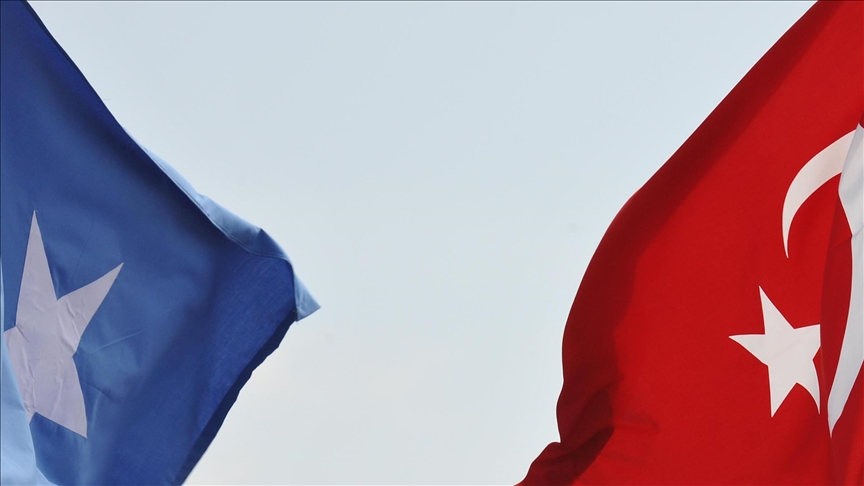Somalia looks to Turkish support to help fight terror in communications domain
Minister Daud Aweis says al-Shabaab using media to spread ‘terror ideology’

ISTANBUL
Somalia is looking to learn from Türkiye’s experience to better fight al-Shabaab’s “terror ideology” in the communications domain, according to a senior official in the Horn of Africa nation.
Daud Aweis, the minister for information, culture and tourism, said the East African nation is fighting terror groups on various fronts.
“We have the military front in which we are making some progress and then there is a financial front that we are trying to regulate,” Aweis told Anadolu Agency in Istanbul, where he took part in the two-day 12th Conference of the Information Ministers of the OIC which concluded Saturday.

Daud Aweis, Somalia's Minister for Information, Culture and Tourism
“The last front which is very crucial is about the ideology and that is supposed to be (spread) by using communication means,” said Aweis, who also held a meeting with Türkiye's Communications Director Fahrettin Altun.
“We discussed how the two countries can work together” in the information domain, he said.
The al-Shabaab terror group has been carrying out deadly attacks in Somalia against government officials and African Union peacekeepers since 2007, including a 2017 bombing in the capital Mogadishu that killed more than 600 people and wounded nearly 1,000 others.
Aweis said disinformation and misinformation are “really part of the problem” and Somalia was a victim of the menace.
“There are media outlets run by al-Shabaab and other terrorist groups. They were disseminating information or reports affecting the society sometimes … causing conflict and problems inside Somali society (which) also is trying to brainwash the people, especially youth,” he said.
“Now, we are trying our best to make sure we tackle this problem.
“We are trying to regulate how reports are disseminated by closing some of the media outlets owned by al-Shabaab – like social media accounts owned by terrorist groups that we identified and closed some of them,” said Aweis.
He warned, however, that the war was still going on and “it is just the beginning.”
“Misinformation is one of the challenges that we are facing.”
“Türkiye, with a background and experience, can work with Somalia and from that cooperation Somalia will achieve something big to make sure that the (terror) menace is completely eliminated from Somalia and the two countries can work together in that (area),” he said.
Erdogan’s 2011 trip ‘crucial’
Aweis said Türkiye and Somalia have longstanding relations “but the crucial time” was when Recep Tayyip Erdogan, currently the nation's president, visited in 2011 amid a devastating drought.
“That ushered a new era for Somalia (as) the international community, which was kind of dormant about Somalia’s situation, came to wake up about Somalia because of Erdogan’s visit to Mogadishu,” he said.
Somalia faced a severe drought in 2011-2012 that was said to be “the worst in 60 years” causing a severe food crisis across Somalia, Djibouti, Ethiopia and Kenya that threatened the livelihoods of 9.5 million people.
“From that time, the two countries have enjoyed a good relationship,” added Aweis.








